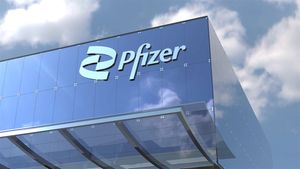
As the medical community converges for the 67th Annual Meeting of the American Society for Radiation Oncology (ASTRO 2025) in San Francisco, a groundbreaking showcase by Fuse Oncology is poised to redefine the landscape of cancer care. Commencing on September 27 or 28, 2025, Fuse Oncology will present its suite of live clinical AI solutions, promising to dramatically enhance efficiency, ensure compliance, and alleviate the pervasive administrative burden on healthcare professionals in radiation oncology. This unveiling signals a pivotal moment for artificial intelligence in medicine, demonstrating tangible applications that move beyond theoretical promise to immediate, impactful clinical integration.
The timing of this presentation, just as ASTRO 2025 opens its doors, underscores the urgency and relevance of AI-driven solutions in modern healthcare. With the aim of reducing the critical "consult-to-first-treatment" time from weeks to a mere 24 hours, Fuse Oncology's innovations are directly addressing a core challenge in oncology: accelerating patient access to vital treatment. The live demonstrations will offer attendees a firsthand look at how AI can streamline complex workflows, free up clinicians to focus on patient care, and ultimately improve outcomes in a field where every moment counts.
Detailed Unveiling: A Closer Look at Fuse Oncology's AI Arsenal at ASTRO 2025
Fuse Oncology's presence at ASTRO 2025 is not just about showcasing technology; it's about demonstrating a holistic, integrated approach to transforming radiation oncology. The company's comprehensive portfolio of AI-powered tools is designed to tackle various bottlenecks within the clinical workflow, from documentation to charge capture and operational analytics. Notably, GE HealthCare (NASDAQ: GEHC) will feature Fuse solutions in its booth, highlighting a significant partnership and validating the interoperability and value of Fuse Oncology's offerings.
Among the standout solutions is FuseDocs, a generative AI tool engineered to streamline clinical documentation. This innovation automatically crafts detailed consult notes, including the History of Present Illness, and other crucial documents from initial consultations through follow-up. By saving physicians an estimated 40 minutes per new patient start, reducing EHR clicks, and enhancing accuracy, FuseDocs directly combats physician burnout and allows clinicians to dedicate more time to direct patient interaction. Another critical offering, S!GNAL, leverages AI to analyze charge capture processes, proactively identifying discrepancies and potential missed revenue. This has already resulted in over $168 million in identified charge capture corrections for Fuse Oncology's clients, underscoring its significant financial and operational impact. Further optimizing operations, FuseAnalytics provides vital metrics to track time-to-treat, pinpoint workflow bottlenecks, and benchmark performance, empowering leaders to align care delivery with institutional goals. FuseRX optimizes treatment care plans by utilizing patient data, hospital preferences, and clinician templates, while Auth+ aims to pre-authorize procedures using historical data and predictive models, thereby decreasing patient wait times. Central to these solutions is the Syntyant Platform, an interoperable, vendor-agnostic system that seamlessly connects various healthcare technologies, including Electronic Medical Records (EMR), Oncology Information Systems (OIS), and planning systems. This unified approach is crucial for accelerating care pathways and improving decision-making by integrating fragmented data. Additionally, Fuse Oncology is developing a dedicated application for ACROPath, integrating evidence-based clinical pathways for radiation oncology in partnership with the American College of Radiation Oncology (ACRO), further enhancing clinical decision support.
Market Implications: Winners and Losers in the AI Oncology Race
The advancements showcased by Fuse Oncology at ASTRO 2025 will inevitably create shifts in the competitive landscape of the healthcare technology market. Fuse Oncology itself stands as a clear winner, solidifying its position as a leader in AI-driven solutions for radiation oncology. The validation from a major player like GE HealthCare (NASDAQ: GEHC) through their partnership further enhances Fuse Oncology's credibility and market reach, positioning GE HealthCare as a forward-thinking enabler of advanced oncology solutions. Other technology companies specializing in interoperability and AI in healthcare, particularly those focused on data integration and workflow optimization, also stand to gain as the industry increasingly embraces these solutions. Partnerships and integrations will become paramount, benefiting companies that can seamlessly connect with diverse healthcare IT ecosystems.
Conversely, companies that rely on outdated, less efficient oncology workflow solutions or those slow to adopt AI will likely face significant challenges. Traditional software vendors that offer siloed systems without robust AI integration or interoperability capabilities may see their market share erode. The pressure to innovate will intensify, forcing competitors to either develop their own advanced AI solutions or seek strategic partnerships to remain competitive. Healthcare providers who hesitate to invest in these transformative technologies might find themselves falling behind in terms of patient care efficiency, cost management, and the ability to attract top talent, ultimately impacting their bottom line and reputation. The event signals a clear message: the future of oncology is intelligent, integrated, and immediate, and those not adapting risk being left behind.
Wider Significance: AI as a Catalyst for Healthcare Transformation
Fuse Oncology's showcase at ASTRO 2025 is more than an isolated product launch; it is a powerful affirmation of broader industry trends signaling AI's transformative role in healthcare. The push for AI in healthcare is accelerating, driven by the need to address physician burnout, improve operational efficiency, and enhance patient outcomes. Solutions like FuseDocs directly tackle the administrative burden, a significant contributor to burnout, with studies indicating that over 40% of physicians spend four or more hours daily on documentation. This aligns with a global market for AI in healthcare projected to exceed $31 billion by 2025, demonstrating a widespread adoption trend across diagnostics, screening, and treatment planning. The emphasis on interoperability through platforms like Syntyant also reflects a critical industry shift towards unifying fragmented data, a long-standing challenge in healthcare IT.
The ripple effects of such advancements will be felt across the entire healthcare ecosystem. Competitors will be compelled to accelerate their own AI development and integration strategies, potentially leading to a wave of innovation and consolidation. Electronic Medical Record (EMR) and Oncology Information System (OIS) providers will face increased pressure to ensure their platforms are open and interoperable, facilitating seamless data exchange with AI-driven applications. From a regulatory perspective, the increasing deployment of clinical AI solutions will intensify scrutiny on data privacy, algorithmic bias, and the need for robust validation studies. Organizations like the FDA are already developing frameworks for AI as a medical device (AI/ML SaMD), and such showcases will undoubtedly influence future policy discussions. Historically, major technological leaps in medicine, such as the advent of advanced imaging or targeted therapies, have always led to significant shifts in practice and market dynamics. Fuse Oncology's live AI solutions represent a similar inflection point, promising to establish new benchmarks for efficiency and personalized care in oncology.
The Road Ahead: Navigating the Future of AI in Oncology
Looking beyond ASTRO 2025, the short-term and long-term possibilities emerging from Fuse Oncology's showcase are profound. In the short term, widespread adoption of these AI solutions could lead to immediate improvements in clinical workflow efficiency, reduced administrative costs for healthcare providers, and faster access to treatment for patients. The successful integration of these tools will likely drive increased demand for skilled professionals capable of managing and optimizing AI-powered systems. Long-term, we can anticipate further advancements in predictive analytics, personalized treatment planning, and even autonomous AI systems assisting in more complex decision-making processes, subject to rigorous validation and regulatory approval.
For Fuse Oncology and its partners, strategic pivots might involve expanding their AI portfolio to other oncology subspecialties or integrating their solutions more deeply into broader hospital systems. Competitors will need to either invest heavily in developing comparable AI capabilities or forge strategic alliances to avoid obsolescence. The market opportunities that will emerge include the development of new AI-driven diagnostic tools, advanced imaging analysis, and patient monitoring systems that leverage real-time data. Challenges will include ensuring data security and privacy, addressing ethical concerns around AI in clinical decision-making, and overcoming resistance to change within established medical practices. Potential scenarios range from a gradual, incremental adoption of AI in oncology to a rapid, transformative shift that fundamentally redefines how cancer care is delivered, making it more precise, efficient, and patient-centric.
A New Era for Oncology: Summing Up the AI Revolution
Fuse Oncology's live clinical AI solutions at ASTRO 2025 mark a significant milestone in the ongoing revolution of healthcare. The key takeaway is clear: artificial intelligence is no longer a futuristic concept but a present-day reality actively transforming oncology workflows. By addressing critical pain points such as administrative burden, operational inefficiencies, and the need for accelerated patient care, Fuse Oncology is demonstrating the tangible value AI brings to the clinical setting. The company's commitment to interoperability and evidence-based integration, exemplified by its Syntyant Platform and ACROPath partnership, sets a high standard for how AI can be effectively deployed within complex healthcare ecosystems.
Moving forward, the market will undoubtedly witness a sustained acceleration in AI adoption across all facets of oncology. This event underscores the imperative for healthcare organizations to embrace intelligent technologies not just as an option, but as a strategic necessity for competitive advantage and improved patient outcomes. Investors should closely watch companies that are leading in AI innovation, particularly those demonstrating proven clinical utility, strong interoperability, and a clear path to regulatory compliance. The lasting impact of these advancements will be a more efficient, precise, and patient-centered approach to cancer care, fundamentally reshaping the industry for decades to come. The future of oncology is here, and it is intelligently augmented.
This content is intended for informational purposes only and is not financial advice






